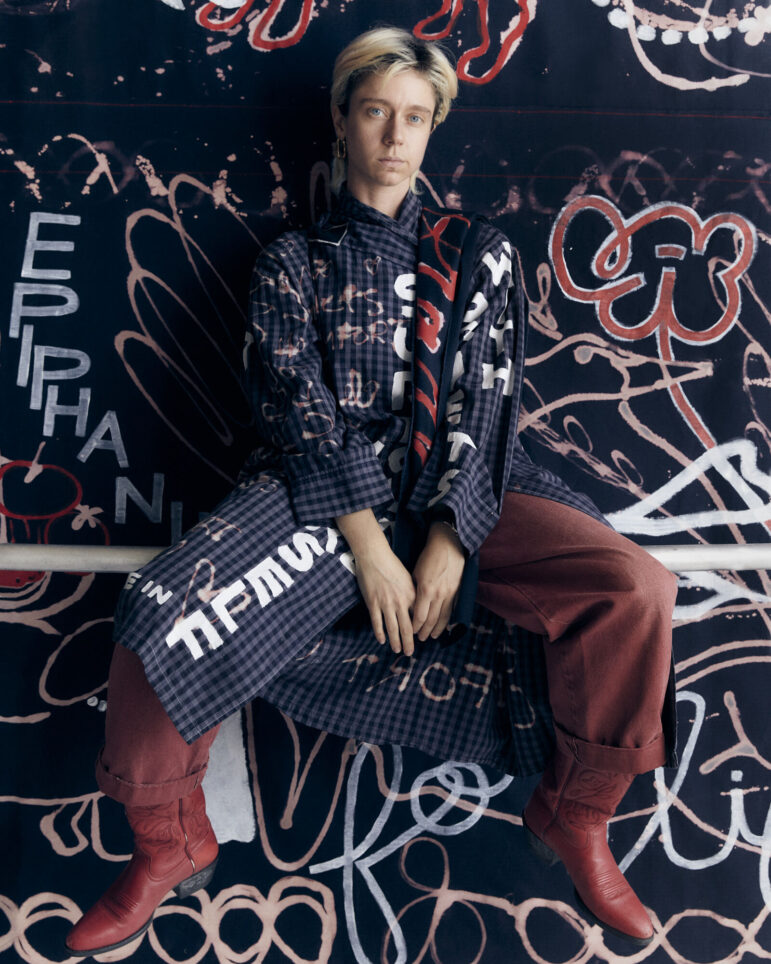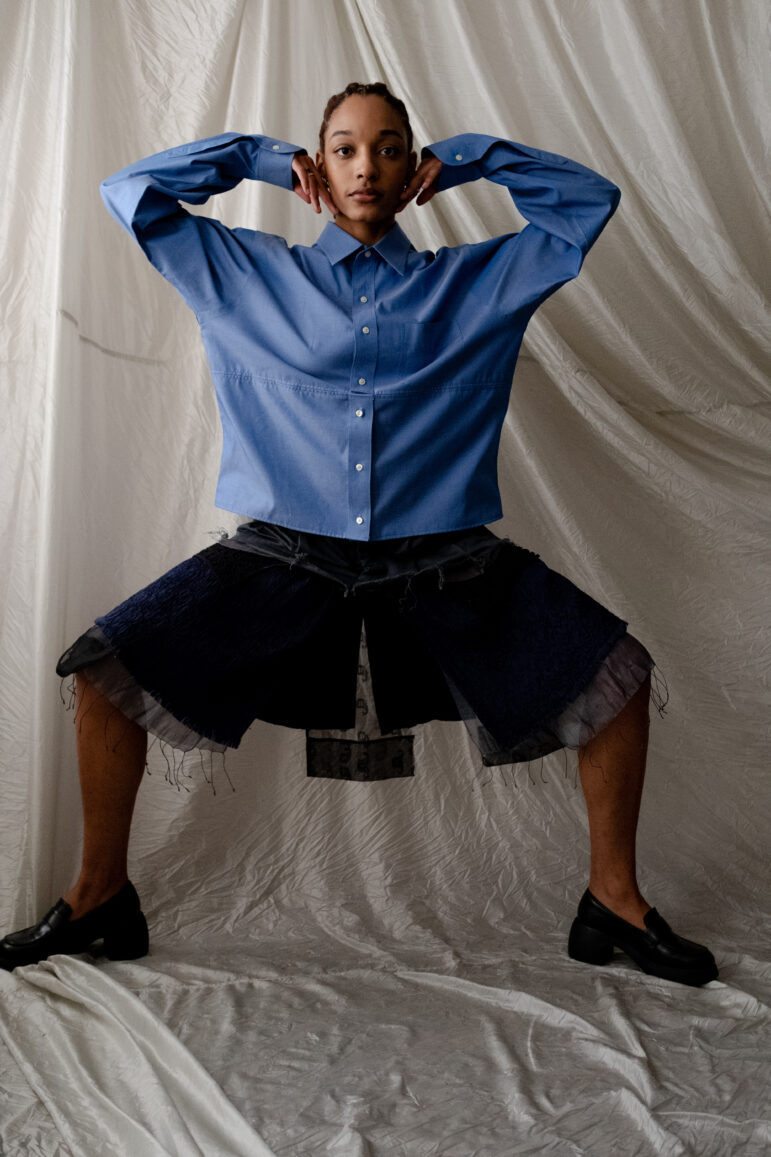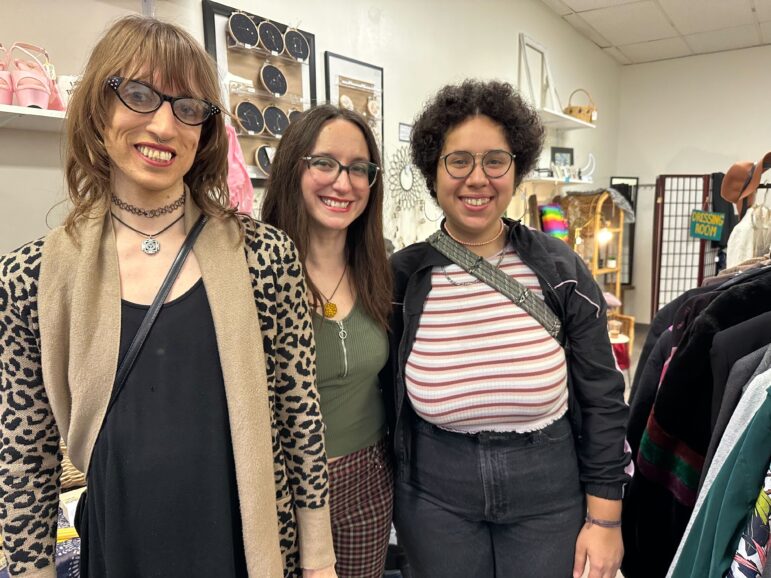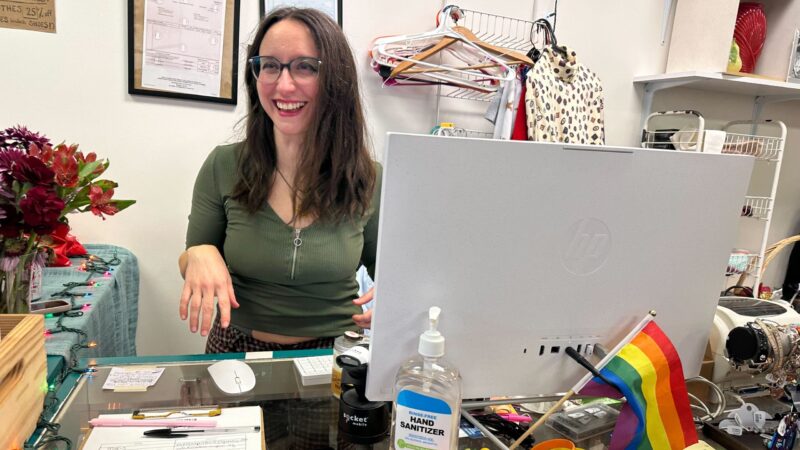This shop is bringing gender-fluid clothing to Birmingham
In 2013 Sarah Randolph had an idea: she would open a store in Birmingham that resembled the vintage and consignment shops she loved, but with a twist. The shop would be gender-neutral.
After seven years and major life changes, including a divorce and coming out as queer, Randolph’s dream came to fruition when she opened rEVOLVer Resale in Birmingham’s Five Points South neighborhood in September 2023.
All clothes at the shop are organized by size and style, but Randolph said she doesn’t separate items based on gender because “gender is just something that we create as a society.”
The store is one of the first of its kind in Birmingham, but gender-neutral clothing has been on the rise for years, reflecting a shift in consumer preferences and expression.
Gender-neutral clothing in culture

Famous artists – like Prince and David Bowie – have worn gender-fluid clothing for decades, without acknowledging it. But recently, the trend has attracted more media attention, with celebrities like Harry Styles stirring up discussion by wearing blouses and skirts.
To non-binary designer MI Leggett, increased recognition has brought positive attention to the gender-nonconforming community.
“We’re seeing a lot more trendsetters and influencers just sort of casually incorporating gender-neutral dressing into their content, into their outfits, into their lifestyle,” Leggett said.
According to fashion industry experts, Generation-Z is the largest consumer group worldwide, with a purchasing power of over $360 billion in the U.S. alone. They’re also experimenting the most with gender-fluid clothing.
“About 58% of the gender-fluid clothing is consumed by Gen-Zers, while millennials are about 40%,” said Sugandha Gupta, a professor at Parsons School of Design.
Gupta said with this trend on the rise, big brands are embracing gender-neutral styles. But in seeking to turn a profit, companies often produce clothes quickly and cheaply, without considering the needs of the consumer group. Gupta said this has led to collections without nuance manufactured in unethical conditions.
Environmental concerns
Leggett’s clothing line, “Official Rebrand,” combines queer liberation and environmental protection by repurposing discarded clothes and removing their previously gendered aspects – like Leggett’s non-binary button down shirt.

The buttons on men’s and women’s shirts go in different directions. Men’s buttons are on the right side, and women’s are on the left.
“So half the buttons go one way and half the buttons go the other way. And then the result is a much boxier fit,” Leggett said.
Leggett recycles Items that fashion companies throw away because they’re damaged.
“I feel like I’m actually kind of a waste management company, in addition to being a fashion brand,” they said.
Finding sustainable clothing choices is another big issue for Gen-Z shoppers. According to consulting firm First Insight, 62% of the generation’s consumers prefer to buy from sustainable brands and 73% are willing to pay more for sustainable items.
Gupta said there are a number of brands turning to practices of reusing materials when producing clothing, but until there are structural changes in our economy, brands will continue to be incentivized to make things as quickly as possible.
commUNITY

Randolph said she hopes her store will empower people to shop second-hand or support a local business, rather than support brands that engage in unethical practices.
She also wants rEVOLVEr resale to be a beacon for the Birmingham queer community, by being a safe space for individuals to freely express themselves.
“I don’t only want to be a store. It’s not just about money for me. I want to be a community resource for the community, by the community,” she said.
She wanted to make sure queer people know her shop is a place of refuge during this period of increased anti-LGBTQ legislation. She specifically cited Senate Bill 4, which would make it a misdemeanor to display an unapproved flag on public property.
In addition to the pride flags in the shop, she keeps a large pride flag in the window that welcomes customers into rEVOLVEr resale.
“It is just a symbol to anyone that even if you don’t realize, it’s a queer owned space, you might realize, ‘Oh, it’s queer friendly.’ I think that’s very important for visibility,” she said.
House Dem. Leader Jeffries responds to air strikes on Iran by U.S. and Israel
NPR's Emily Kwong speaks to House Minority Leader Hakeem Jeffries (D-NY), who is still calling for a vote on a war powers resolution following a wave of U.S.- and Israel-led airstrikes on Iran.
Iran’s Ayatollah Ali Khamenei is killed in Israeli strike, ending 36-year iron rule
Khamenei, the Islamic Republic's second supreme leader, has been killed. He had held power since 1989, guiding Iran through difficult times — and overseeing the violent suppression of dissent.
Found: The 19th century silent film that first captured a robot attack
A newly rediscovered 1897 short by famed French filmmaker Georges Méliès is being hailed as the first-ever depiction of a robot in cinema.
‘One year of failure.’ The Lancet slams RFK Jr.’s first year as health chief
In a scathing review, the top US medical journal's editorial board warned that the "destruction that Kennedy has wrought in 1 in office might take generations to repair."
Here’s how world leaders are reacting to the US-Israel strikes on Iran
Several leaders voiced support for the operation – but most, including those who stopped short of condemning it, called for restraint moving forward.
How could the U.S. strikes in Iran affect the world’s oil supply?
Despite sanctions, Iran is one of the world's major oil producers, with much of its crude exported to China.




